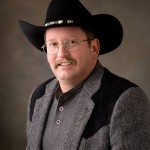 Perhaps we should. My wife and I decided that it was the right thing to change our children’s names as we adopted them. This happened across the board, from Jack, who was only a month old when he joined our family, clear up to Emily who was fifteen.
Perhaps we should. My wife and I decided that it was the right thing to change our children’s names as we adopted them. This happened across the board, from Jack, who was only a month old when he joined our family, clear up to Emily who was fifteen.
That really upsets some people. My kids? Not so much. Recently a mom-blogger voiced her disagreement and so I decided to find out what my adopted children really thought. We had never talked about it before.
Whether or not I understand how it feels to have my name changed, my children do. (My eighteen-year-old with Down syndrome could have been asked the question many times and would have provided contradictory answers, so I’ll leave him out of this particular story.) The children I questioned range in ages from twenty-two, down to nine. Four of the five said they preferred getting a new name. The youngest, my nine-year-old son, said; “I wish I still had my Russian name, but it’s okay.”
It is interesting that the one who wishes his name hadn’t been changed is the only one who doesn’t have any memories of where he came from. He has also not reached the point where he is ready to hear about his past. (His psychologist told us that when he was ready, he would ask questions and that then we should answer those questions honestly, and wait until he was ready for more.)
Our children who prefer their new names don’t wonder if they were kidnapped and sold on the black market. They don’t think that a loving birth-mother and birth-father gave them away to wealthy Americans. They don’t wonder if a birth-mother was pressured into giving them away, against her will, because of what society or religion might have thought. My four daughters know where they came from and it was a life of horrific abuse. It took an incredible amount of work on our part to get them to even tolerate our speaking well of Russia. To them, Russia was nothing more than an abusive home, and then an orphanage. Amérika was Utopia. They wanted to forget where they had come from, and with the exception of a few friends, everything about that place. Perhaps that is why a name change was to their preference. I don’t know. I can tell you, though; those circumstances were not part of our decision to change their names.
Amy and I had three sons biologically before we began adopting. That culminated in adding one more child by domestic adoption, and five more from Russia. Amy and I put a lot of thought into the names of our first three sons. Their names had meaning to us and some had family ties. When we adopted our other children, we wanted them to feel like they were just like other members of our family. We wanted them to feel like they were just like other members of our community. I’ll now admit; that was naïve thinking. Of course there are times when they feel different. Maybe the name changes reduced that. Maybe they didn’t.
Each of our five children from Russia bear the names of ancestors of either Amy or me, who left their native lands and migrated to the United States. We have used the stories of those ancestors to show our children that they are not the only ones in our family who left native lands behind. We teach them that emigration is never easy, but that with hard work, it can be worth it. Our children know that our reasons for changing their names were based on love, and wanting the best for them. Perhaps that is why Denney (maiden name of my mother, and surname to Charles Denney, the first from that family to leave England) cuts me some slack.
I’m sure that my “on the job training” of being a dad will cause my children some difficulties. It has been like learning to drive during the Indianapolis 500. I have made plenty of mistakes and one thing is sure; I’ll make plenty more. But I hope my children, whether added to our family biologically or through adoption, always understand that I tried to do my best with the knowledge I had available to me. And I hope, most of all, they always know I love them.
 John M. Simmons, 49, is the award winning author of The Marvelous Journey Home and To Sing Frogs. Both books are based on adoptions from Russia. Orphans and orphanages changed Mr. Simmons’ entire view on life. He recently resigned from the position of President/CEO of White Knight Fluid Handling, Inc., a company that he started, so that he could spend more of his time focusing on orphan and adoption awareness. Simmons is Chairman of Ele Lembra (He Remembers), a 501(c)(3) public charity that assists children as they age out of orphanages. He can be found at: http://www.johnsimmons.com
John M. Simmons, 49, is the award winning author of The Marvelous Journey Home and To Sing Frogs. Both books are based on adoptions from Russia. Orphans and orphanages changed Mr. Simmons’ entire view on life. He recently resigned from the position of President/CEO of White Knight Fluid Handling, Inc., a company that he started, so that he could spend more of his time focusing on orphan and adoption awareness. Simmons is Chairman of Ele Lembra (He Remembers), a 501(c)(3) public charity that assists children as they age out of orphanages. He can be found at: http://www.johnsimmons.com
